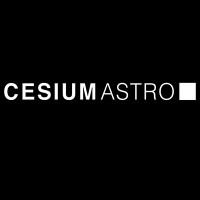Role :
This is an exciting opportunity for an experienced environmental modeller with strong
programming expertise to join our growing team. Working alongside our Principal Soil
Modeller, you will be responsible for developing, implementing, and maintaining components of
the Agricarbon Ecosystem Model (AEM) using Python.
Key responsibilities:
Working with agricultural ecosystem models (AEM) including plant growth models
(LINTUL-5, LINGRA), soil organic carbon models (RothPC, RothPC-N), soil water
models, mineral nitrogen models, and grazing models
Model Integration: Implementing and maintaining the integration between different
AEM components, ensuring seamless data flow between plant growth, soil carbon,
water, nitrogen, and livestock models within the Bayesian data assimilation framework
Technical Development
Bayesian Framework Development: Contributing to the development and
maintenance of the Bayesian data assimilation framework that underpins the AEM,
ensuring robust uncertainty quantification and model calibration
Model Development: Configuring, running, and extending existing model components
such as LINTUL-5 (arable crops), LINGRA (grass), RothPC-N (soil organic carbon and
nitrogen), developing Python implementations that maximise the benefit of our access to
the world's largest soil carbon database
Must have:
Advanced Programming Skills: Extensive experience in Python programming for
data science and environmental modelling, including proficiency with scientific
libraries (NumPy, SciPy, Pandas, scikit-learn, GeoPandas) and Bayesian statistical
libraries (PyMC or similar)
Environmental Modelling Experience: Proven experience developing and
working with ecosystem models or related areas
Data Science Proficiency: Extensive experience with machine learning
techniques and their application to environmental data, including model validation
and statistical analysis
Code Quality Focus: Experience with software development best practices
including version control (Git), testing frameworks, and code documentation
Problem-Solving Skills: Excellent analytical and problem-solving abilities with
extreme attention to detail and a rigorous approach to model development
Educational Background: Master's degree or PhD in Data Science,
Environmental Science, Computer Science, or related field with a strong focus on
modelling and programming
Nice to have:
- Experience with Bayesian methods and data assimilation frameworks
- Familiarity with Soil carbon (e.g. RothC) and crop growth models (e.g. LINTUL, WOFOST, DSSAT, APSIM) or grassland (e.g. LINGRA) models, and/or integrated agricultural system models
- Knowledge of nitrogen cycling and soil-plant-atmosphere interactions
- Familiarity with data assimilation using satellite-derived data (e.g. Leaf area index, canopy cover)
- Experience with cloud computing platforms for large-scale data processing (AWS, Azure, GCP)
- Track record of peer-reviewed publications in relevant fields
- Geospatial data handling experience (e.g., GeoPandas, DuckDB, etc.)
Familiarity with containerisation and deployment technologies (Docker)







